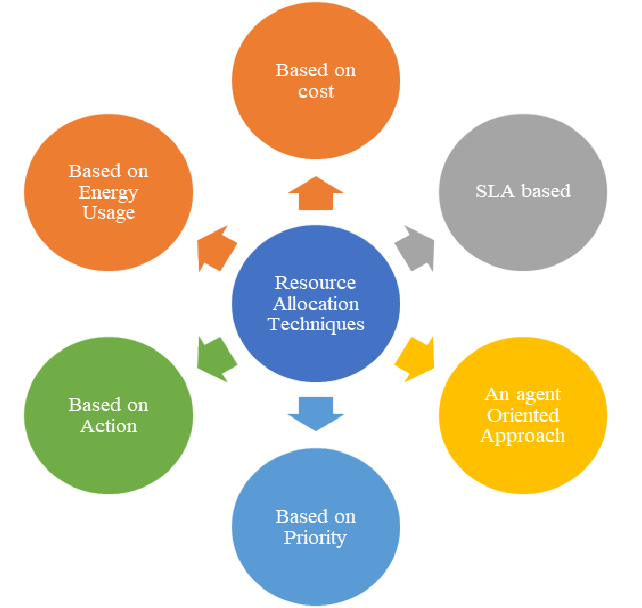
- Introduction
- Assist in Decision Making
- Planning Future Strategies
- Controlling Business Activities
- Measuring Performance
- Interpreting Financial Information
- Resource Allocation
- Enhancing Operational Efficiency
- Improving Profitability
- Ensuring Accountability
- Supporting Strategic Goals
- Conclusion
Introduction
Objectives Of Management Accounting is a vital discipline that equips organizations with the tools and insights to make informed decisions and manage resources efficiently. Unlike financial accounting, which is primarily concerned with external reporting and compliance, management accounting is inward-focused, dealing with planning, control, decision support, Supporting Strategic Management and performance management.In today’s dynamic business landscape, companies must continuously adapt to market changes, improve processes, and make evidence-based decisions. Management accounting facilitates this adaptability by analyzing financial and non-financial data to aid internal stakeholders. Techniques such as budgeting, variance analysis, and cost management ensure that managers are well-informed and empowered to lead their teams toward organizational goals.
To Explore PMP in Depth, Check Out Our Comprehensive PMP Certification Training To Gain Insights From Our Experts!
Assist in Decision Making
One of the most important roles of management accounting is to assist in decision-making. Objectives Of Management Accounting provide relevant, timely, and accurate data that helps managers choose alternative courses of action. This could include deciding whether to launch a new product, discontinue an underperforming service, outsource a function, or invest in new equipment. To support such decisions, management accounting applies various tools:
- Cost-benefit analysis.
- Break-even analysis.
- Marginal costing.
- Opportunity cost analysis.
- Identifying profitable markets or products.
- Estimating future capital and operational needs.
- Preparing multi-year financial projections.
- Analyzing competitor data and market shifts.
- Control is a key part of management accounting that keeps organizational activities on track with plans and budgets. By regularly checking performance and comparing actual results to expected targets, management accounting helps maintain financial discipline and operational effectiveness.
- Important control tools include standard costing and variance analysis, which highlight differences between budgeted and actual spending. Monitoring key performance indicators (KPIs) helps organizations assess progress in important areas.
- Identifying inefficiencies and waste also boosts overall productivity. When performance falls short of targets, management accountants play a vital role in suggesting corrective actions.
- By continually reviewing financial and operational data, management accounting helps spot problems early, allowing for quick adjustments. This proactive approach ensures resources are used effectively and that the organization stays focused on its financial and strategic goals.
- Assessing and evaluating performance is a key part of management accounting. It is essential for helping organizations move toward their goals.
- This process offers a clear framework that includes both financial and non-financial indicators to measure how well resources are used and how goals are met.
- Important performance indicators can include Return on Investment (ROI), net profit margin, productivity ratios, Business Activities, customer satisfaction scores, and employee efficiency data. These indicators give a clearer picture of business performance that goes beyond just financial results.
- Tools like Balanced Scorecards and dashboards are often used to present these metrics in a simple and easy-to-understand way.
- This helps people make informed decisions at every level. Regular performance assessments encourage accountability, point out areas for improvement, and promote a culture of continuous growth.
- This supports organizations in staying competitive and focused on their strategic goals.
- Understand profit fluctuations.
- Identify reasons for cost increases.
- Detect declining sales or market share.
- Evaluate project viability and investment returns.
- Allocating budgets across departments.
- Prioritizing capital investments.
- Evaluating make-or-buy decisions.
- Assigning workforce to high-value projects.
- Improving operational efficiency is crucial for staying competitive and increasing profit margins. Management accountants play a key role in this by analyzing workflows and assessing costs to spot inefficiencies, redundancies, or areas that aren’t performing well within the organization.
- To support this effort, they use tools like lean accounting, benchmarking, productivity analysis, and process costing. These methods help organizations streamline workflows, cut waste, automate repetitive tasks, and shorten cycle times.
- By improving operational efficiency, companies can achieve significant cost savings, offer better customer service, Strategic Management and boost employee productivity. These are all important factors for succeeding in today’s fast-changing market.
- Discontinuing loss-making products.
- Revising pricing models.
- Streamlining the supply chain.
- Negotiating better supplier contracts.
- Tracking progress through performance metrics.
- Providing regular strategy-aligned financial reports.
- Helping identify strategic risks and opportunities.
- Advising leadership on strategic investments.
By quantifying the financial impact of different choices, management accounting reduces uncertainty and enhances rational decision making. Managers are better equipped to assess risks, forecast outcomes, and make strategic moves contributing to business growth and sustainability.
Planning Future Strategies
Management accounting plays a critical role in strategic planning. It supports long-term and short-term planning by forecasting revenues, estimating costs, and evaluating market trends. Strategic planning involves setting business goals and defining the required resources and actions. Management accountants contribute by:
These insights guide top management in formulating sound expansion, diversification, digital transformation, or internationalization strategies. Management accounting ensures that strategic decisions are grounded in realistic financial assessments, thus minimizing risk and enhancing execution.
Controlling Business Activities
Are You Interested in Learning More About PMP? Sign Up For Our PMP Certification Training Today!
Measuring Performance
Interpreting Financial Information
Management accounting goes beyond simply collecting data; it interpreting financial information to make it meaningful for decision-makers. This involves analyzing trends, identifying patterns, understanding causal relationships, and presenting data in ways that non-financial managers can comprehend. Interpretation helps managers:
Practical interpretation ensures that the right insights are communicated to the right people at the right time. It transforms raw data into actionable knowledge, enhancing the organization’s quality and speed of decision-making.
Are You Preparing for PMP Jobs? Check Out ACTE’s Project Management Interview Questions & Answer to Boost Your Preparation!
Resource Allocation
Optimal resource allocation is vital for achieving strategic objectives. Management accounting helps in the rational distribution of financial, human, internal stakeholders and physical resources by assessing project viability, return potential, and cost structures. Examples include:
By applying techniques such as capital budgeting (e.g., NPV, IRR) and activity-based costing, management accounting ensures that resources are used where they generate the highest value. This contributes directly to operational effectiveness and strategic alignment.

Enhancing Operational Efficiency
Improving Profitability
Most organizations’ ultimate objective is profitability, and management accounting directly supports this goal. By analyzing cost structures, evaluating pricing strategies, and identifying profitable and unprofitable segments, Strategic Management accountants provide insights to boost the bottom line. Examples of profitability-enhancing strategies include:
Management accountants also assist in developing cost-effective marketing and sales campaigns by calculating customer acquisition costs and lifetime value. These measures ensure that every financial decision contributes to sustained profitability.
Are You Considering Pursuing a Master’s Degree in PMP? Enroll in the PMP Masters Program Training Course Today!
Ensuring Accountability
Accountability is crucial for driving performance and fostering a transparent organizational culture. Management accounting supports this by assigning financial responsibility to departments, teams, or individuals and holding them accountable for their results. Responsibility accounting and budgetary control systems help track how effectively managers use resources and meet financial targets. Reports highlight variances and investigate causes due to organizational goals inefficiency, poor planning, or external factors. This level of transparency motivates managers to take ownership of their results and make better decisions. It also builds stakeholder trust by demonstrating a structured governance and performance evaluation approach.

Supporting Strategic Goals
All functions of management accounting converge toward supporting the organization’s strategic goals. Whether it’s increasing market share, entering a new region, reducing carbon footprint, or innovating products, management accounting ensures that strategic initiatives are financially viable and properly resourced. It aligns day-to-day decisions with long-term objectives by:
This strategic orientation ensures that the organization remains focused, agile, and competitive in the face of industry disruptions or economic challenges. Management accounting acts as the bridge between strategy and execution.
Conclusion
Objectives Of Management Accounting is an indispensable function that touches nearly every aspect of business management. From assisting in decision making and planning strategies to controlling activities, measuring performance, and ensuring accountability, it empowers organizations to operate with clarity, efficiency, Business Activities, Supporting Strategic Goals and foresight. In a world where data drives decisions, management accountants serve as interpreters, strategists, and advisors. Their work helps improve profitability and efficiency and supports strategic transformation and long-term success. By integrating financial internal stakeholders with business operations, management accounting transforms information into action and action into impact. For any organizational goals aspiring to be proactive, agile, and strategically driven, embracing the full capabilities of management accounting is not just valuable—it is essential.





